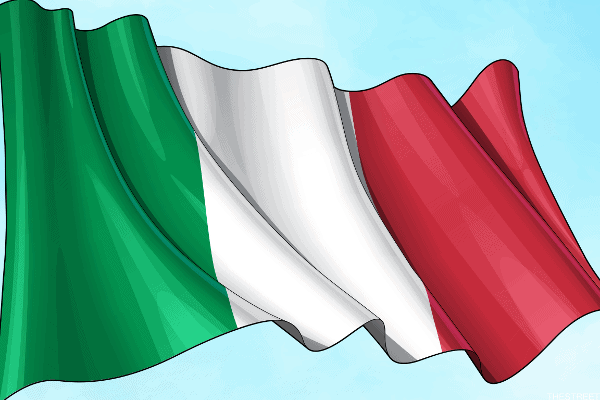
Italian stocks fell to the lowest levels in more than a year Monday, while bond yields spiked and the euro slumped, after President Sergio Mattarella rejected the appointment of an anti-euro finance minster, sparking calls for his impeachment and sending Europe’s third largest economy into a dangerous constitutional crisis.
Italy’s Prime Minister-designate, Giuseppe Conte, abandoned plans to form a government Sunday after Mattarella refused to accept the appointment of Paolo Savona, an 82-year old economist and vocal anti-euro critic, to the post of finance minister. Mattarella will now attempt to form a “technocratic” government this week, led by a former International Monetary Fund official Carlo Cottarelli, but that is unlikely to survive a confidence vote in parliament, meaning Italy will likely return to the polls in the fall to elect a new leadership that could seek an exit from the single currency.
“The uncertainty over our position has alarmed investors and savers both in Italy and abroad,” Mattarella said Monday. “Membership of the euro is a fundamental choice. If we want to discuss it, then we should do so in a serious fashion.”
Italy’s FTSE MIB index of blue chip stocks fell hard Monday, led by steep declines for bank shares — many of which were halted by bourse regulators during the session — to trade at 22,049.54 points by midday in Milan, the lowest level in at least 13 months.
Italy’s benchmark 2-year government bond yields surged 27 basis points Monday, the biggest single-day jump in six years, to trade at 0.93% while 10-year BTPs traded at 2.59%, the highest since August 2014. The euro slipped to 1.1642 against the U.S. dollar.
Italy’s Five Star Movement (M5S), a collection of new political leaders who gained popularity in the poorer southern region with their mix of populists and anti-establishment policies, as well as the right wing Lega party, have been attempting to form a workable government since winning 56% of the popular vote in Italy’s March 4 elections.
President Mattarella, however, who must approve the coalition’s platform, has growing increasing concerned that the pair are planning to defy EU rules on deficit spending and currency sovereignty by borrowing billions to fund campaign promises while issuing a form of short-term debt that some consider to be a parallel version of the euro.
The attempt to put Savona, a long-time critic of the euro who has called for Italy’s exit from the single currency, into a key “Brussels-facing” role looks to have both tested Mattareall’s patience to its limit and set the tone for the presumed elections in the fall, which are now likely to hinge of M5S/Lega’s plans to either fall within the limits of EU spending rules or openly call for an exit from the euro.
























